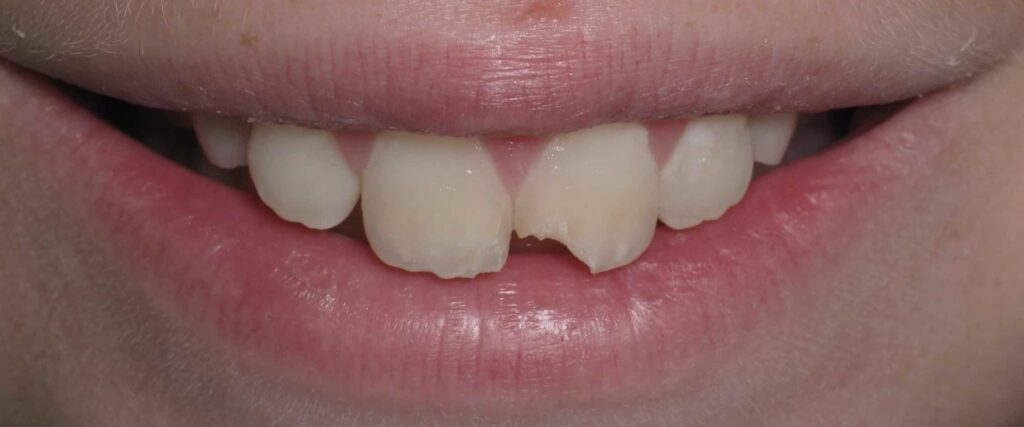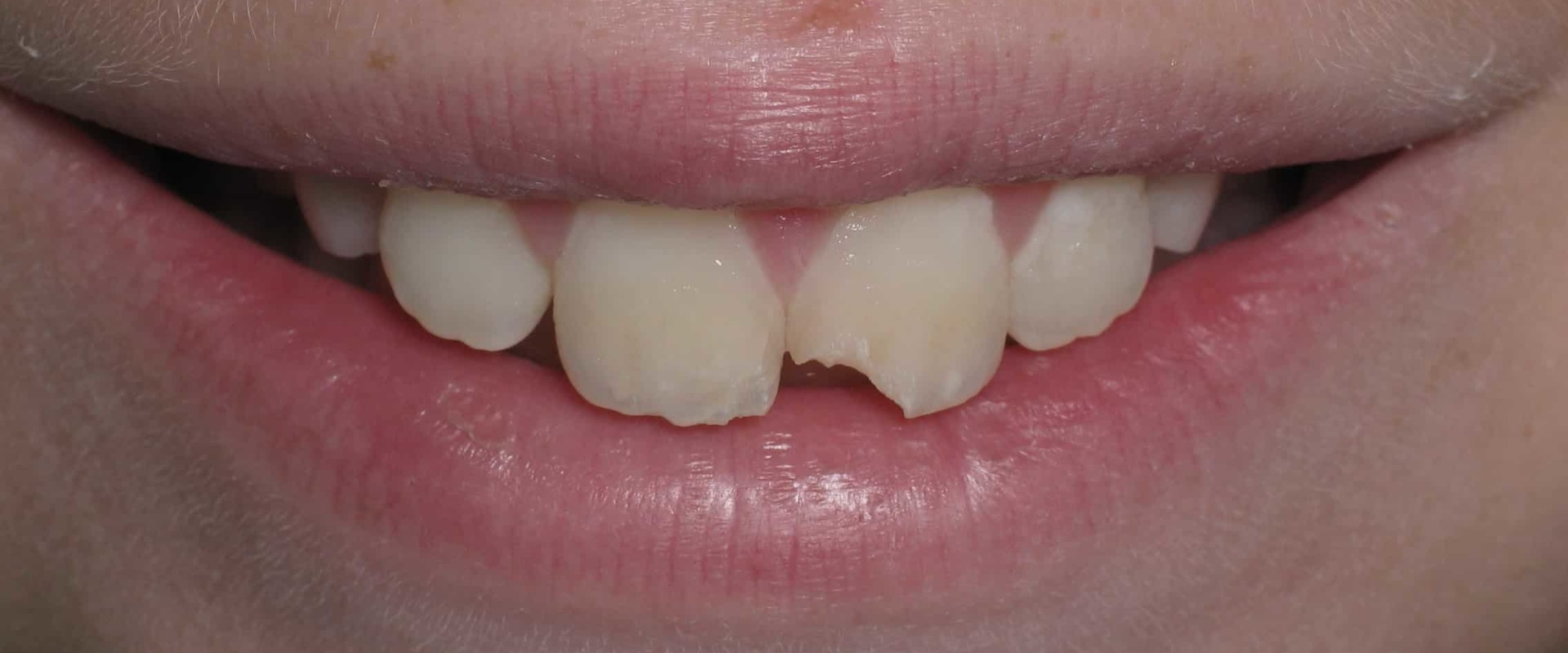
Chipped Tooth Repair: A Guide to Saving Money on Dental Treatment
A chipped tooth can be a jarring experience, impacting both your smile and your confidence. Beyond the cosmetic concerns, a chipped tooth can also lead to pain, sensitivity, and even more serious dental problems if left untreated. The good news? Chipped tooth repair is a common and often straightforward procedure. However, the cost of chipped tooth repair can vary significantly depending on the severity of the chip, the chosen treatment, and, crucially, the dentist you choose. This article will delve into the world of chipped tooth repair, emphasizing the importance of obtaining multiple quotes to ensure you receive the best possible care at the most affordable price.
The information presented here is intended for general knowledge and informational purposes only, and does not constitute medical advice. It is essential to consult with a qualified dental professional for any health concerns or before making any decisions related to your health or treatment.
Understanding Chipped Teeth: Causes, Symptoms, and Severity
Before exploring repair options, it’s helpful to understand what causes a chipped tooth and how it affects your oral health. Chipped teeth can result from a variety of factors, including:
- Trauma: Accidents, falls, or blows to the face are common culprits.
- Teeth Grinding (Bruxism): This can weaken teeth and make them more susceptible to chipping.
- Biting Down on Hard Objects: Chewing ice, hard candies, or pens can lead to chips.
- Tooth Decay: Weakened enamel due to cavities can make teeth more prone to damage.
- Large Fillings: Extensive fillings can sometimes weaken the remaining tooth structure.
The symptoms of a chipped tooth can vary depending on the severity of the chip. Some individuals may experience:
- Pain: Sharp or intermittent pain, especially when biting.
- Sensitivity: Sensitivity to hot or cold foods and drinks.
- Visible Chip: A noticeable crack or piece missing from the tooth.
- Roughness: A rough or sharp edge on the tooth.
- Aesthetic Concerns: A change in the appearance of your smile.
The severity of a chipped tooth is categorized based on the extent of the damage. Minor chips may only involve a small piece of enamel, while more severe chips can extend into the dentin (the layer beneath the enamel) or even expose the pulp (the tooth’s inner core containing nerves and blood vessels). The severity of the chip will directly influence the treatment options and, consequently, the cost of chipped tooth repair.
Common Chipped Tooth Repair Options
The treatment for a chipped tooth depends on its severity and location. Here are some of the most common repair options:
Bonding
Bonding is often the simplest and most affordable option for minor chips. The dentist applies a tooth-colored resin to the chipped area and shapes it to match the existing tooth. The resin is then hardened with a special light. Bonding is a quick procedure, usually completed in a single visit, and can effectively restore the tooth’s appearance and function. The cost of bonding is typically lower than other repair options.
Veneers
Veneers are thin, custom-made shells that are bonded to the front surface of the teeth. They are a good option for more significant chips or for teeth that are discolored or misshapen. Veneers are made of porcelain or composite resin and can provide a more durable and aesthetically pleasing result than bonding. The process typically involves two visits: one to prepare the tooth and take impressions, and another to place the veneer. Veneers tend to be more expensive than bonding.
Crowns
A crown, or cap, is a tooth-shaped covering that is placed over the entire tooth. Crowns are used for more severe chips or when a significant portion of the tooth is damaged. They protect the tooth from further damage and restore its strength and function. Crowns can be made of various materials, including porcelain, ceramic, and metal alloys. The process usually involves multiple visits, including preparing the tooth, taking impressions, and placing the permanent crown. Crowns are generally the most expensive repair option.
Root Canal Therapy
If the chip has exposed the tooth’s pulp, a root canal may be necessary. This procedure involves removing the infected or damaged pulp, cleaning and sealing the root canals, and placing a crown to protect the tooth. Root canal therapy is a more complex and costly procedure than the other options listed above.
The Importance of Getting Multiple Quotes for Chipped Tooth Repair
The cost of chipped tooth repair can vary significantly from one dental practice to another. Several factors contribute to these price differences:
- Location: Dental costs tend to be higher in urban areas compared to rural areas.
- Dentist’s Experience and Expertise: More experienced dentists may charge more for their services.
- Materials Used: The cost of materials, such as the type of resin or porcelain used for veneers, can vary.
- Dental Practice Overhead: The cost of running a dental practice, including rent, equipment, and staff, can affect prices.
Obtaining multiple quotes is crucial for several reasons:
- Cost Comparison: Comparing quotes allows you to identify the most affordable options.
- Treatment Plan Comparison: Different dentists may recommend different treatment plans. Getting multiple quotes allows you to compare these plans and choose the one that best suits your needs and budget.
- Negotiation: Having multiple quotes can give you leverage to negotiate prices with dentists.
- Understanding Costs: Quotes provide a detailed breakdown of the costs involved, helping you understand what you’re paying for.
How to Get Multiple Quotes for Chipped Tooth Repair
Here’s a step-by-step guide to obtaining multiple quotes:
- Research Dentists: Start by researching dentists in your area. Look for dentists with good reviews and experience in chipped tooth repair. Websites like Google Reviews, Yelp, and the American Dental Association (ADA) website can be helpful resources.
- Schedule Consultations: Contact several dentists and schedule consultations. During the consultation, the dentist will examine your tooth, discuss your treatment options, and provide a quote.
- Ask for Written Quotes: Always request a written quote. This should include a detailed breakdown of the costs, including the cost of materials, the dentist’s fees, and any other associated expenses.
- Compare Quotes Carefully: Compare the quotes carefully, paying attention to the treatment plan, the materials used, and the total cost.
- Ask Questions: Don’t hesitate to ask questions about the quotes. Clarify any uncertainties and ensure you understand all the costs involved.
- Consider Payment Options: Inquire about payment options, such as financing plans or payment installments.
- Make an Informed Decision: Based on the quotes and consultations, choose the dentist and treatment plan that best meets your needs and budget.
Factors to Consider Beyond Price
While price is an important factor, it shouldn’t be the only one. Consider these factors when choosing a dentist for chipped tooth repair:
- Dentist’s Experience: Look for a dentist with experience in the specific type of repair you need.
- Dentist’s Credentials: Check the dentist’s credentials and ensure they are licensed and in good standing.
- Patient Reviews: Read patient reviews to get an idea of the dentist’s reputation and the quality of their care.
- Office Environment: Consider the office environment and whether you feel comfortable and confident in the practice.
- Communication: Choose a dentist who communicates clearly and answers your questions thoroughly.
Insurance and Chipped Tooth Repair
Dental insurance may cover a portion of the cost of chipped tooth repair. The extent of coverage depends on your insurance plan and the type of treatment required. Check with your insurance provider to determine your coverage for specific procedures. They can tell you about your deductible, co-insurance, and any limitations on coverage. Be sure to inquire about pre-authorization requirements, as well.
Preventing Chipped Teeth
While accidents can happen, there are steps you can take to reduce your risk of chipping a tooth:
- Wear a Mouthguard: If you participate in contact sports, wear a mouthguard to protect your teeth from injury.
- Avoid Chewing on Hard Objects: Refrain from chewing on ice, hard candies, pens, or other hard objects.
- Practice Good Oral Hygiene: Brush and floss your teeth regularly to prevent tooth decay, which can weaken enamel.
- See Your Dentist Regularly: Schedule regular dental checkups and cleanings to detect and address any dental problems early on.
- Treat Bruxism: If you grind your teeth, talk to your dentist about treatment options, such as a mouthguard.
By taking these preventative measures, you can significantly reduce your risk of experiencing a chipped tooth.
Conclusion: Your Guide to Saving on Chipped Tooth Repair
A chipped tooth can be a frustrating experience, but with the right information, you can navigate the repair process effectively and affordably. Remember to get multiple quotes to compare prices and treatment plans. Consider the dentist’s experience, credentials, and patient reviews. By following these steps, you can find a qualified dentist who can restore your smile without breaking the bank. Proactively seeking out multiple quotes for chipped tooth repair is a smart financial move that can save you money and ensure you receive high-quality dental care. Don’t let a chipped tooth get you down; take control of your oral health and your budget by seeking multiple quotes today.
[See also: Related Article Titles]


